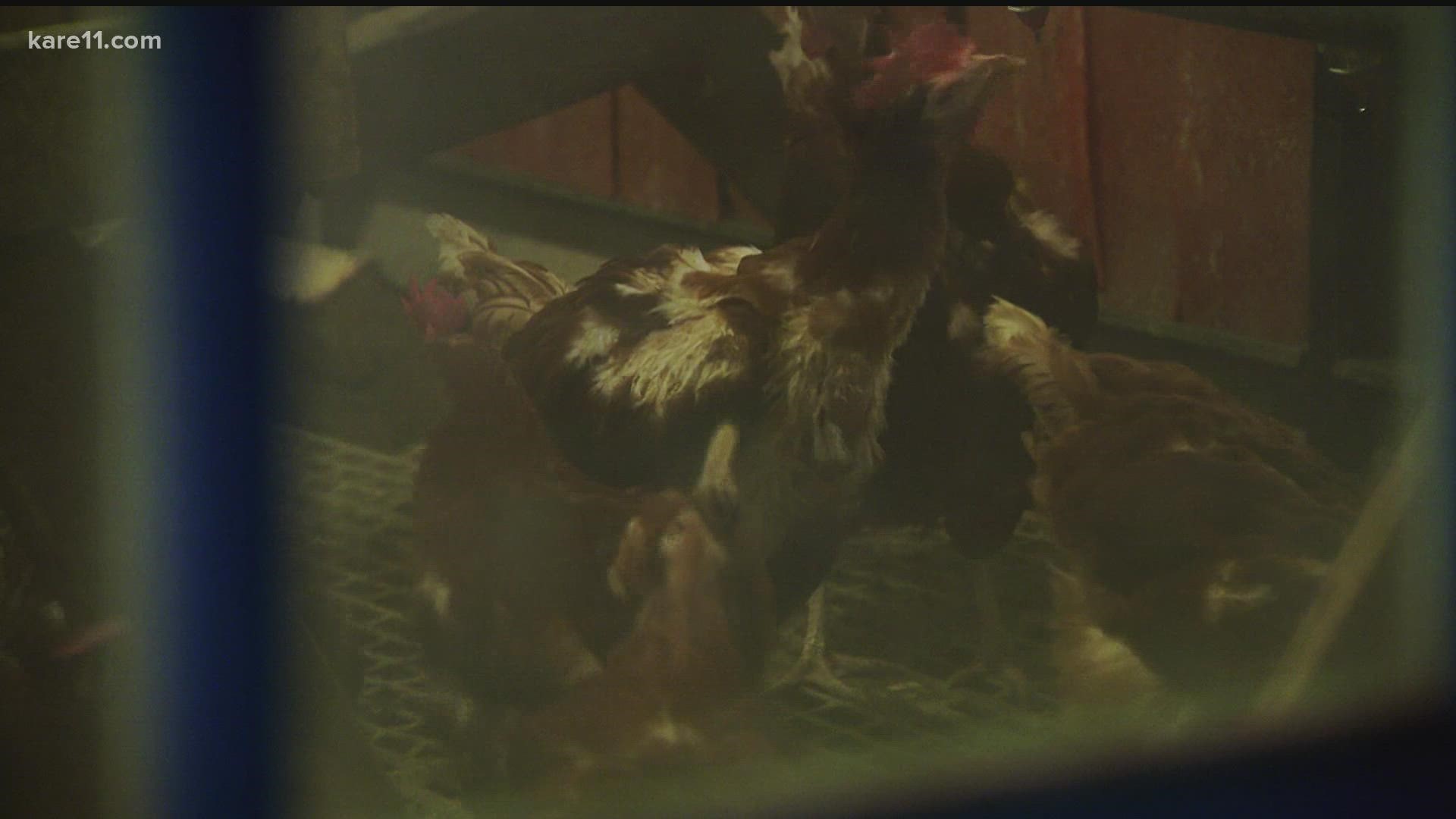FARMINGTON, Minn. — Food prices could soon skyrocket even more as a new bird flu sweeps across the country, threatening to wipe out farmer's flocks.
Aaron Brand is a longtime farmer in Farmington who tends to thousands of chickens. His livelihood could be at stake if the birds contract the highly contagious avian influenza that has been circulating in Europe and Asia for months.
"What's going to end up happening with them is they're going to get killed, immediately," said Brand.
University of Minnesota Extension Educator Abby Schuft says euthanasia only happens on premises with infected birds and financial reimbursement is provided if it happens under the Minnesota Board of Animal Health.
Spread by migratory bird droppings, the U.S. Department of Agriculture is reporting cases in 30 states, totaling roughly 13 million birds that have had to be killed.
The cases have been found Wisconsin, South Dakota and Iowa, but not Minnesota, which is the country's top turkey producer.
"So the density — the hosts — that we have here make it almost a perfect storm to host that virus," said Schuft.
She recommends commercial and hobby farms tighten-up bio-security measures.
"They're minimizing who has access to the farm and minimizing trips in and out of the barns," said Schuft. "The dangerous time right now is the next couple of months."
Brand is even considering not letting his hens outside this spring. The experts agree and recommend feeding your birds in an enclosed space, as well as making the area less attractive to wild birds to minimize the threat of an outbreak.
An outbreak triggered by a similar bird flu seven years ago wiped out 50 million hens and turkeys, mostly in Iowa and Minnesota, and caused prices to soar for months.
"Their livelihood is put down in a matter of hours," said Brand. "They can’t do anything, they can’t repopulate the barn until they get through the quarantine process."
Brand is already raising his egg prices $0.50 for the first time as the cost of feed keeps going up due to inflation and the war in Ukraine.
"I don't think we've seen the high, they're still going to creep up," he said.
Experts say the next couple months are the most crucial, as they hope the wild birds move out and take the strain with them.
"Our best hope is that this will simply fly right over us," said Schuft. "Especially if the Canadian weather cooperates and those migratory birds move on up and over us and don’t stop and rest."
This virus is also confirmed in other bird populations like pelicans, owls, bald eagles, geese, ducks and gulls. If you see a dead bird, Schuft recommends contacting the Minnesota Board of Animal Health and report it — just in case.
Minnesota Board of Animal Health
625 Robert Street North Saint Paul, MN 55155.
Ph: 651-296-2942
Watch more local news:
Watch the latest local news from the Twin Cities in our YouTube playlist:

